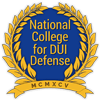Drunk driving can result in some fairly severe consequences, but when it involves the death of another person, the consequences can be quite momentous. When a driver is arrested for driving under the influence (DUI) and death occurs, the driver will be charged with either vehicular homicide, vehicular manslaughter, or second-degree murder. The second-degree murder charge arises when the prosecution believes that the driver acted with implied malice or a conscious disregard for life while drunk driving. While it can be difficult for the prosecution to establish implied malice, it is always prudent for drunk drivers who are charged with second-degree murder to seek representation from a highly skilled California DUI attorney who has expertise in handling such cases.
Prosecutors will try to establish “implied malice” when a DUI defendant also incurred other traffic offenses, such as road rage, drag racing, fleeing from police, or other similar behaviors. Additionally, prosecutors will determine if the DUI defendant’s actions call for him or her being charged with “Watson murder.” Watson murder charges are only filed in the most extreme of circumstances. If the prosecution can show that the DUI defendant had a special knowledge or appreciation of the dangers of driving drunk, then the charge may be classified as a Watson murder. The consequences for such a charge may include the sentencing of the California DUI defendant to 15 years to life in a state prison.
In order to show the court/jury that the Watson charge is judicious in a DUI case, the prosecutor most often will point to prior DUI convictions by the DUI defendant. If the DUI defendant has prior DUI convictions, then the prosecutor may be able to establish that the DUI defendant already knew the dangers of driving drunk, but choose to do so anyway. Most often the prosecution is able to establish this because in the prior DUI conviction, the DUI defendant plead guilty or no contest to a drunk driving charge. In some jurisdictions, when a DUI defendant does this, he or she either in court or through a signed admission (the Watson warning), admits that he or she understands the inherent dangers of drunk driving in California.










